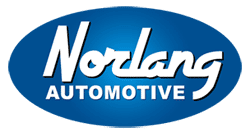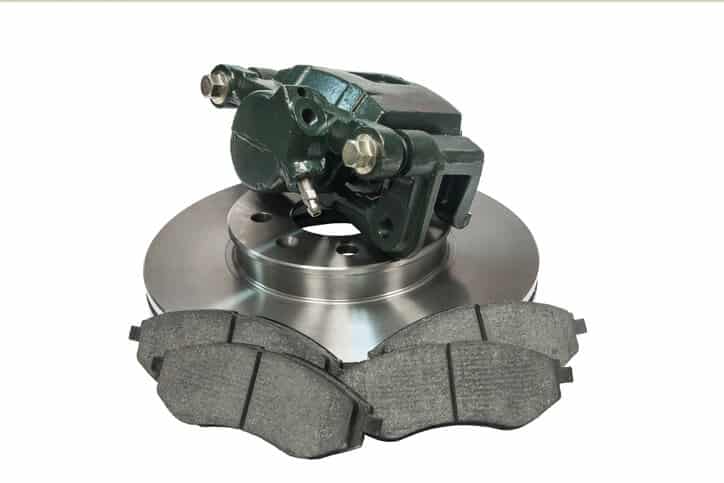At Norlang Auto, we have noticed that a large number of drivers tend not to give too much thought to one of the most vital parts of their vehicles – their brakes. As the old adage goes: “Out of Sight, Out of Mind” since our brake system is not easily visible, we tend to ignore it and when we realise there is an issue, it usually needs to be dealt with immediately. However, we all agree that our brakes and tires need to be inspected and properly maintained on a regular basis in order to ensure our safety and that of anyone else who shares the roads with us.
Your Safety Is Our Priority
Our licensed and highly trained technicians specialise in servicing brake systems for both domestic and imports. With your safety being our top priority, at Norlang Auto, we have invested a great deal in making sure we have the most up to date brake inspection and diagnostic tools available. Consequently, we can provide all our customers with an accurate diagnosis of every brake system and ensure that proper maintenance and repairs are performed right the first time. On a daily basis, we replace brake pads and rotors, which are part of normal wear and tear, but also perform extremely complicated ABS and Traction related diagnostics and repairs.
Basic Facts About Your Brakes
The majority of drivers, when asked if they know what brakes do, will answer confidently that brakes stop a vehicle from moving. Well, indirectly they do help stop the movement of a vehicle but what they actually do is prevent your wheels from turning. What stops your vehicle is the friction of your tires against the road, which is why tire maintenance is also quite important.
Today’s braking systems are quite complex and fortunately very effective in helping us control our vehicles even under the most adverse road conditions. Basically, most modern braking systems use disc brakes which consist of 5 parts: discs/rotors, calipers, pads, brake lines and the master cylinder.
How Your Brake System Functions
The brake system operates hydraulically by using fluid to transfer the pressure exerted by our foot on the brake pedal to the brakes on the wheels. This hydraulic pressure is built-up in the master cylinder and then travels through the brake lines from the master cylinder to the calipers. The calipers, which are wrapped around the brake disc, contain small pistons that push the brake pads against the disc/rotor and stop the movement of your wheel. The more pistons in a caliper, the more evenly pressure is distributed against the brake disc, which is the reason why high-performance vehicles contain more than two pistons (in fact some of the high-performance brake systems may have 8-12 pistons).
Possible Issues With Your Brake System
When inspecting a braking system, it is important to ensure that the master cylinder is working properly since it needs to be able to provide enough power to push the fluid to the brakes via the brake lines which should always be checked for any damage or leakage. If the brake lines are not in good condition you can experience a sudden brake loss, which is extremely dangerous at any speed. Of course, since the system operates hydraulically, your brake fluid needs to be inspected for cleanliness and replaced according to your vehicle’s manufacturer recommendations, which is usually every two years. It’s not enough just to top-off your brake fluid since it attracts moisture which reduces its boiling point. If the brake fluid boils it can cause brake fades (i.e. the pedal depresses farther, closer to the floor). The moisture in the fluid can also corrode the metal components within the braking system which could lead to additional brake issues.
The most common part of a brake system which needs replacement are the brake pads which clamp down on the discs. When the pads get worn, they don’t make a smooth connection with the discs and can even damage them by creating rough spots and uneven grooves. The result of worn or damaged brake pads and discs is an increase in your vehicle’s stopping distance and an increase in the possibility of having a collision.
Advice To Help You Brake Safely
Apart from having your braking system properly maintained by professional and experienced technicians like those at Norlang Auto, you also need to be aware of a few simple things which may influence the effectiveness of your braking and extend your system’s lifespan.
- Monitor regularly the condition and the air pressure of your tires
- Take into consideration the physical state of the road you are driving on
- Be very cautious when driving on wet or icy roads (stopping distance can increase 10 – 30%)
- On long journeys stop for a rest every few hours (it’s beneficial for both you and your car)
- Avoid “hard braking” especially at high speeds (it’s taxing on your brakes and increases the possibility of losing control of your vehicle)
- Only use your right foot to brake to avoid unnecessary brake taps
- Coast before you brake to reduce speed and brake wear
We hope the information we provided will help keep you safe and get the most out of your braking system. For more information about brake maintenance and repairs, you can visit us, call us at 604-888-8681 or book an appointment online now.

